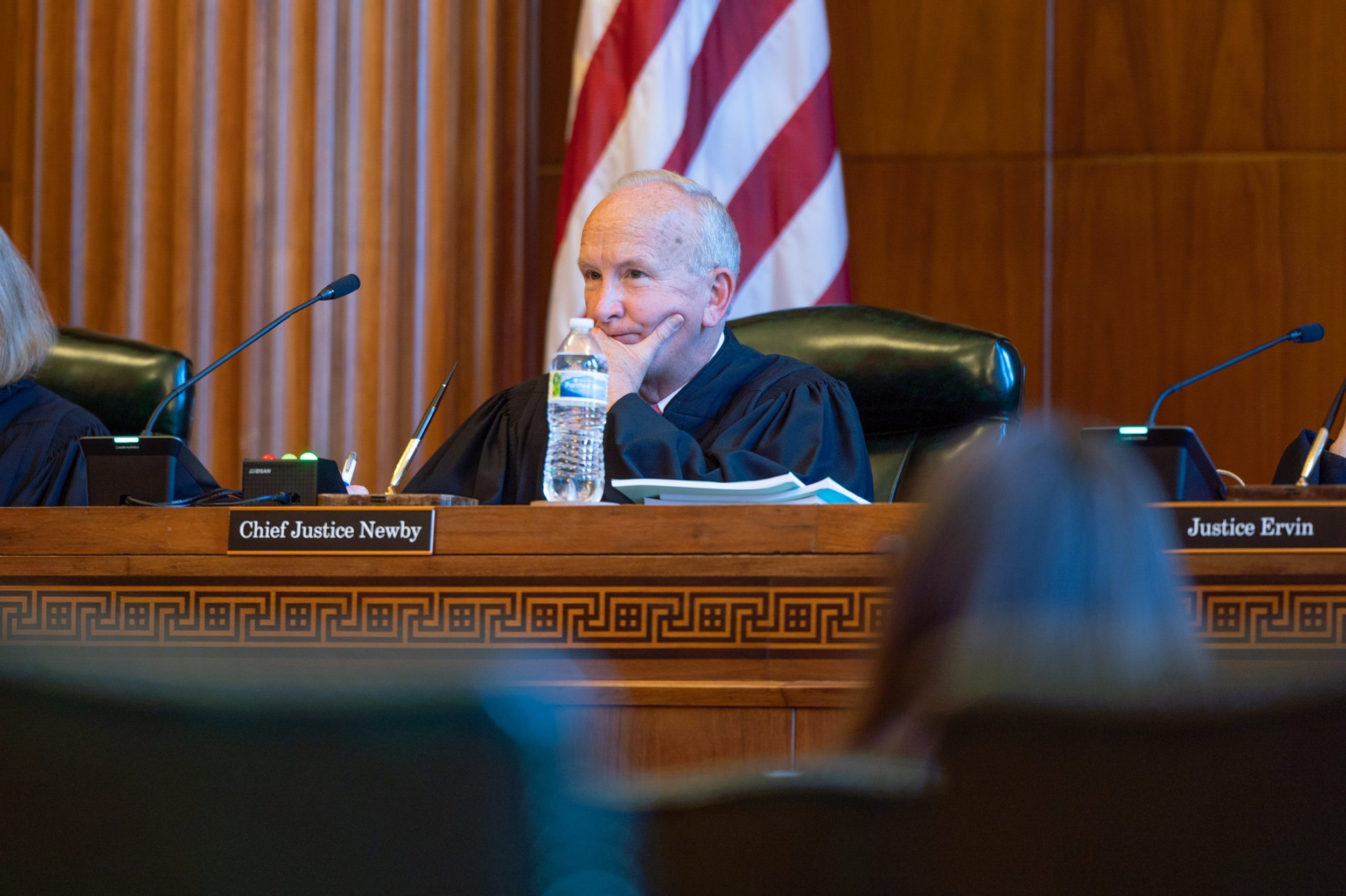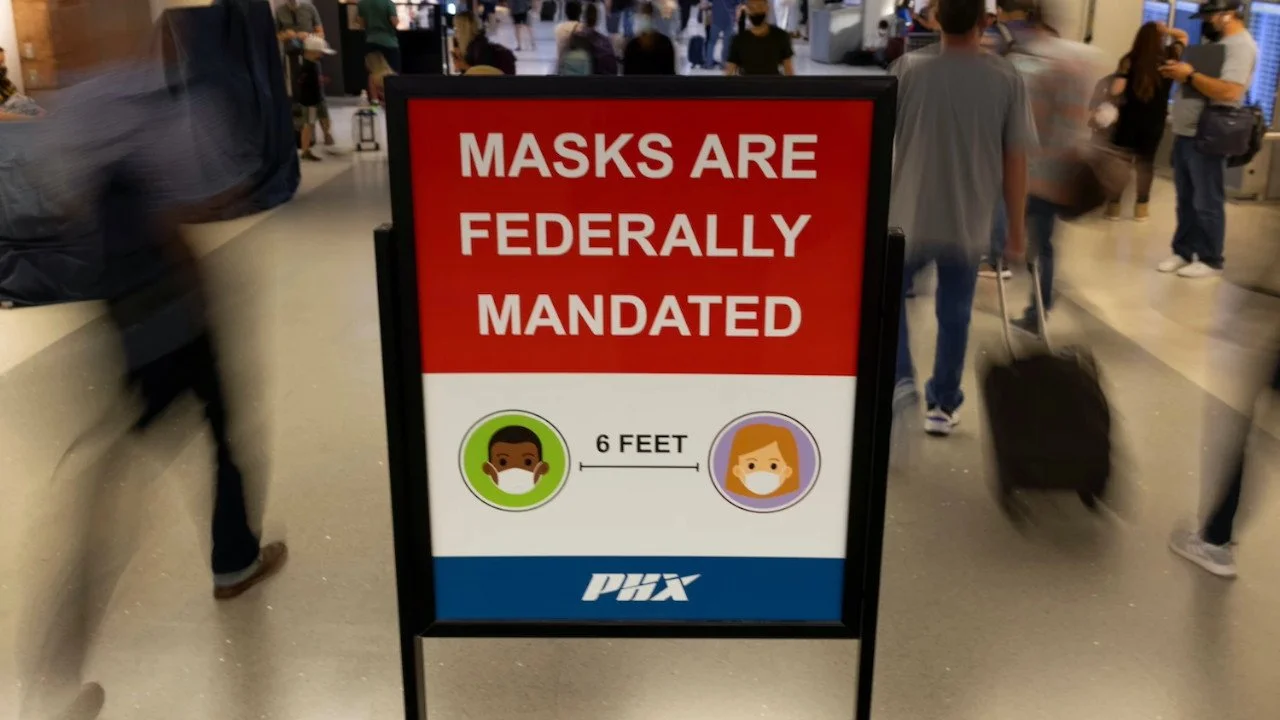OPINION: State Supreme Court Democrats open door for more legal mischief
Image attached of N.C. Supreme Court Chief Justice Paul Newby. Maya Reagan, Carolina Journal.
By Mitch Kokai, Carolina Journal
The N.C. Supreme Court recently ordered a new trial for a man convicted in a 26-year-old murder case. The circumstances of the court’s split decision raise concerns for Republican justices.
They accuse Democratic colleagues of lowering the bar for convicted criminals seeking retrial based on “new” evidence. A lower standard could lead more prisoners to clutter N.C. courtrooms with requests that had not been permitted in the past.
The Supreme Court’s 4-2 decision stemmed from the Lee County case of Utaris Mandrell Reid. A jury convicted Reid in 1997 of first-degree murder and common law robbery. The charges stemmed from the fatal assault and robbery of taxicab driver John Graham. Suffering “severe head trauma” during the criminal attack, Graham was hospitalized from late October to December 1995 before dying from his injuries.
Two months after the crime, then 14-year-old Reid admitted to the killing. While speaking with a Sanford police detective, Reid said, “I am not going down for this myself,” according to the Supreme Court’s majority opinion. Then, “in a rambling confession, [he] admitted to assaulting Graham with three other boys.”
After two trials, Reid’s murder convictions netted him a sentence of life in prison without parole.
Fourteen years after his conviction, Reid tried to have his sentence thrown out as unconstitutional in 2011. That effort initially failed, but Reid presented a new affidavit from a childhood friend. The friend said that three other people had confessed to him that they had attacked and robbed Graham. Reid's friend had never mentioned this story before “because he had been living by a ‘street code.’”
By 2018 Reid was able to convince a Superior Court judge that the friend’s story amounted to new evidence worthy of a new trial. But in 2020 the N.C. Court of Appeals unanimously overruled that decision. Among appellate judges’ concerns were “numerous inconsistencies” in the friend’s story. Reid had “failed to establish” that the story was likely true.
The Appeals Court also faulted Reid’s defense for failing to exercise “due diligence” at the time of his initial trial. The childhood friend submitted an affidavit in the 2010s about information known back in 1995. It did not qualify as “new” evidence.
The Supreme Court’s four Democrats disagreed. Writing for them, Justice Anita Earls criticized appellate judges for engaging in the “prohibited exercises of reweighing evidence and making witness credibility determinations.”
Left unsaid in Earls’ majority opinion was its direct attack on the legal reasoning of her Republican colleague, Justice Phil Berger Jr. He authored the Appeals Court opinion rendered in October 2020. Less than one month later, voters elected Berger to the state’s highest court.
Berger did not participate in the Supreme Court’s consideration of Reid’s case. But both of his Republican colleagues dissented from Earls’ majority ruling.
“’[A] new trial for newly discovered evidence should be granted with the utmost caution and only in a clear case, lest the courts should thereby encourage negligence or minister to the litigious passions of men,’” Chief Justice Paul Newby wrote, citing a precedent dating back to the 1930s. “The defendant ‘has the laboring oar to rebut the presumption that the verdict is correct and that he has not exercised due diligence in preparing for trial.’ Because the majority ignores these fundamental principles and significantly lowers the standard for ‘newly discovered evidence,’ I respectfully dissent.”
Like the defendants in three precedent-setting cases, Reid “failed to take reasonable action to procure the evidence that he now deems ‘newly discovered.’” Newby added.
The chief justice questioned actions taken by Reid’s original attorney, Fred Webb. “If Webb knew these potential witnesses believed defendant was innocent and had information implicating other perpetrators, then Webb had an obligation to further investigate the extent of their knowledge,” Newby wrote. “For example, Webb could have inquired into the identities and locations of the ‘other guys that [the potential witnesses] thought had done it.’”
“Instead, it appears that for reasons of his own, Webb declined to pursue these leads,” the chief justice added. “Due diligence required Webb to conduct further investigation where he likely could have discovered the information that defendant now classifies as newly discovered.”
Newby chides his Democratic colleagues. “[T]he majority now lowers the due diligence bar, allowing a defendant to decline to interview a witness he believed to be material,” then filing a motion years later “asserting that the witness’s testimony is newly discovered.”
“[O]ur case law presumes that an underlying verdict is correct,” Newby concluded. “When a defendant seeks a new trial based upon newly discovered evidence, there is a presumption that the defendant did not exercise due diligence in preparing for trial. It is the defendant’s burden to overcome the presumption of lack of due diligence.”
By ignoring case law, the Supreme Court’s Democrats opened the door to more opportunities for legal mischief.
Mitch Kokai is senior political analyst for the John Locke Foundation.



